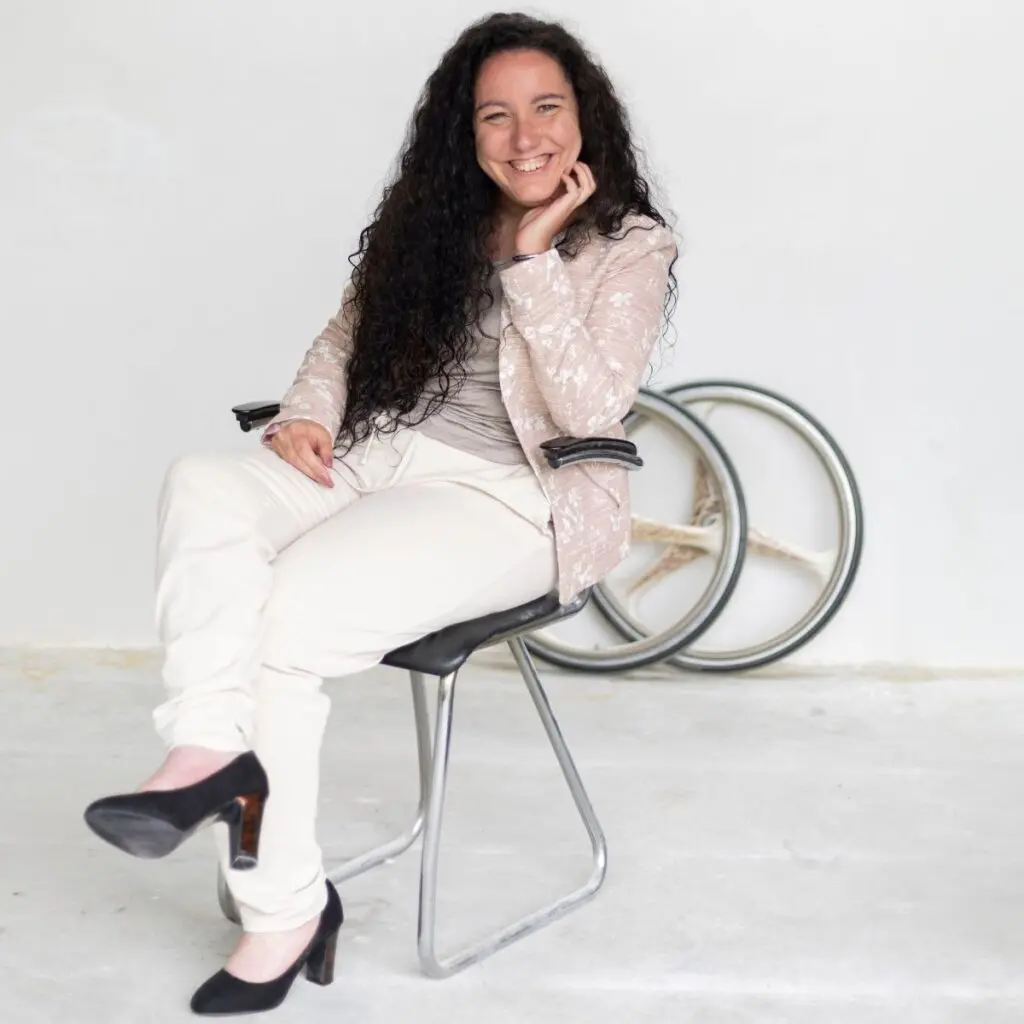Only 1 in 5 employers employs someone with a disability. If it is up to Nadia van den Heuvel, this will soon change. She helps people with a distance to the labour market move forward.
Nadia van den Heuvel works every day with heart and soul in her 2 companies, Ictoria and Xtoria. She successfully helps people with disabilities find work. Is that charity? ‘No, of course not. We don’t sit around being cute. My people do good work. I am business and social. As a social entrepreneur, I help and keep people employed. Not because ‘everyone can join’. That makes me sick to my stomach. It’s not philanthropy, we’re just a business!’
Her mission is accomplished when we stop talking about inclusive employment and a distance from the labour market. ‘I only have one interest and that is to help as many people with that supposed distance to work as possible. At their level, with an eye for their talents and their potential.’
‘The first thing we do is train people. People are more than their disability. We look at the total person. Where does their potential match an employer’s demand? And we don’t sell bullshit. An employer knows what he gets, because we are honest about what someone can and cannot do. Sometimes someone has a lot to learn, but can already pick up certain tasks in the meantime. We are clear about that, both to the employer and the person we are mediating.’

What obstacles did you yourself encounter in the job market?
‘I entered special education as a child. In friends’ books, I wrote at what you want to be later, “I won’t become a welfare recipient”. Later, tests showed that I am above-average intelligent. I still meet people who are surprised by this. Because I am in a wheelchair, people apparently have a different expectation. They fill in a picture based on their own prejudices. Career advisers, job coaches, hr advisers; they fill in a lot themselves.’
How do you think it should be done?
‘HR specialists need new ways of selection. Stop with those standard job ads. For example, why is the 40 hours always in there! Is that really necessary? Look first at what you really need. And HR professionals can ask themselves the question: do you want someone who can already do everything, or someone who wants to learn a lot? Who do you think wants to stay with you longer? If you look at people that way, you will see many more possibilities. Always allow yourself to be amazed.’
What does it take to keep people with disabilities in work?
‘For retention, ‘preconditions’ is the magic word. People must first be given the chance to find out what preconditions they have to be comfortable at work. You have to talk to each other about that. And employers need to provide structured tailoring. Take one of my own employees. She works 24 hours, over four days. Not on Thursdays, because that’s when she goes to the physiotherapist. She has to travel quite far for that, which is stressful. So she works at home on Fridays. Another colleague has Asperger’s. If he has to do something social, he gets overstimulated. So he anticipates that. So he takes ownership of his work, and also of his challenges. He arranges it so that he can function. If you know your people well and know exactly what they need, fallout is not that bad.’
So why does it seem so difficult?
‘People often come to me only after they have already had a lot of help. I have to get through a wall before I can touch someone at all. For example, I recently had an intake with someone who had had 7 (!!!) job coaches. Because of the amount of assistance, he was unable to work. That touches me deeply. We have become a care society, and someone like that is the loser. We have set up so much process guidance. Municipalities, employers, agencies, big companies; they behave according to the letter of the law, for fear of doing it wrong. Where is the creativity to mediate someone to work? That is lost in fear of angry letters.’
How do you find that creative space though?
‘I don’t belong to anyone and I don’t belong to anyone. Because I am independent, my people don’t have to eat from government money. I can say to UWV, for example, that what they ask of someone is pointless. Because I earn the money in the free market, I have the space to be a ‘functional bitch’. That does mean I have to win assignments. I am there to make sure my people have salaries. If I am at a networking event, my job is to go home with new assignments. That’s how I maintain my autonomy. It also means that I pay myself a normal salary, no director’s salary and no profit distribution. All the money we turn over goes to our highest goal: labour participation.’
Source: Handicap.nl




